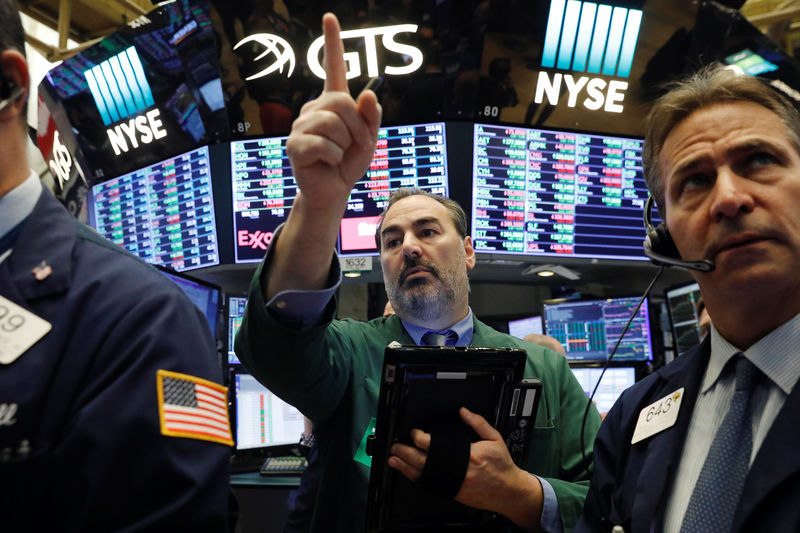LONDON (Reuters) - Following are five big themes likely to dominate thinking of investors and traders in the coming week and the Reuters stories related to them.
1/CORRELATION ROTATION?
Rising U.S. bond yields equate to a stronger dollar, right? Usually, yes - a higher-yielding currency tends to be attractive to international investors. But that correlation between U.S. Treasury yields and the dollar seems broken this year.
That's particularly so against the yen; along with Treasuries, that's viewed as a "safe" asset to which investors turn in times of stress. But of late, that relationship is starting to look like a negative correlation. As 10-year yields (US10YT=RR) approached 3 percent this week, the greenback hit 15-month lows against the yen
This correlation drop is among the sharpest on record, says ING Bank, dubbing the shift as "a dollar regime change". The reason? Analysts reckon Treasuries are selling off because of fears for U.S. fiscal stability as government spending and tax cuts send the budget deficit towards $1 trillion. So as fiscal risks mount, the dollar and Treasuries get sold off simultaneously, resulting in a decoupling between yields and the greenback.
Investors will watch Treasury yields and the dollar to see if this correlation breakdown persists.
(Graphic: Correlation breakdown - http://reut.rs/2BvlyyZ)
2/BIG BOX PROXIES
Those wondering how spendthrift Americans are feeling after recent stock market gyrations may glean clues from the sales outlook at Home Depot (N:HD) and Walmart (N:WMT) when they report fourth-quarter results on Tuesday.
Earnings at these "big box" Dow components have represented the bright side of U.S. retail; the companies themselves are seen as proxies for much of the U.S. economy. From food and clothes to home renovations, next week's figures may shed light on spending intentions, as consumers start to see a little extra in their pay checks thanks to income tax cuts approved in December.
So far, Walmart has notched more than three straight years of comparable sales gain. That performance is expected to continue, as the bricks-and-mortar retailer tries to "out-ecommerce" Amazon.com (NASDAQ:AMZN) in the competition for customers who prefer to shop from the couch. Home Depot, meanwhile, is still riding the real estate boom. Each has outpaced the Thomson Reuters Same Store Sales Index for the past six quarters and is projected to do the same in Q4. Walmart shares are up 48 percent in the past 12 months and Home Depot is up almost 31 percent - while the S&P 500 (SPX) has risen 15 percent.
(Graphic: BIG BOX PROXIES - http://reut.rs/2C352Hu)
3/NO INFLATION, NO PROBLEM
There was an interesting divergence in the way Asian stock and bond markets reacted to the recent sell-off.
Asian stocks did take a tumble - after all, big regional companies are part of global supply chains. But bond markets were more focused on the outlook for inflation and interest rates in the region, and that remains subdued.
Inflation has fallen short of expectations in New Zealand, Australia, South Korea and Japan, among others, leaving central banks in those countries in no hurry to tighten policy. So while U.S. two-year yields have risen about half a percentage point in the past three months, their Asian peers have held steady or even slipped.
Consequently, next week's data on Australian wages and Japanese inflation will be scrutinised for signs consumer prices are gaining traction, but few are holding their breath. For now, the rate divergence trade is firmly in play.
(Graphic: Short-term U.S. yields outpace Asian yields - http://reut.rs/2BuxvFa)
4/BANKING ON UK BANKS
Shares in UK banks (FTNMX8350) have lagged their European peers this year (SX7P), which have benefited from the looming end of European Central Bank bond-buying. British banks haven't, by contrast, capitalised on the Bank of England's policy tightening. They have also seen litigation costs keep coming and a slump in trading divisions.
So next week's full-year results from HSBC (L:HSBA), Lloyds (L:LLOY), Barclays (L:BARC) and RBS (L:RBS) will be crucial. Investors will parse them for signs of progress on all those fronts and to see if higher rates are easing pressure on margins.
And crucially, they want to know if the banks will be able to return capital to investors; analysts have called 2018 a turning point for the lenders, with increased prospect of share buybacks.
(Graphic: UK Banks: Price Returns in 2018 - http://reut.rs/2o1a9Q0)
5/TIGHT BUDGET
Markets have roared their approval for South Africa's new President Cyril Ramaphosa, but with the country's budget due on Wednesday, the honeymoon looks to be decidedly short. At the heart of South Africa's challenges is the low pace of economic growth.
It is making the fiscal situation worse and keeping unemployment high, especially amongst the young. Troubled state-owned firms such as power utility Eskom and South Africa Airways also need to be sorted out, while the tax system needs a major overhaul. It looks like being a busy first week in the job for the new man in charge.

(Graphic: South Africa Budget Balance - http://reut.rs/2BvqHXS)